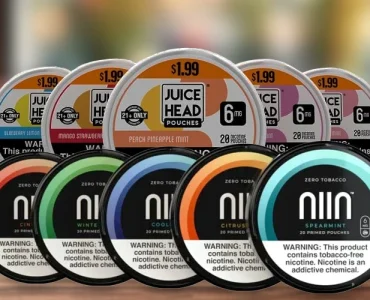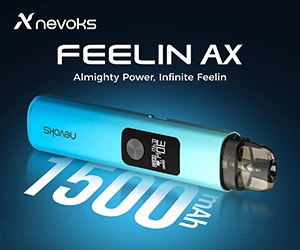Key Takeaways
- THCV, or Tetrahydrocannabivarin, is a naturally occurring cannabinoid found in cannabis and hemp plants. Due to the small amounts of THCV these plants contain, it is considered a minor cannabinoid.
- Most THCV users report feeling clear-headed, focused, and relaxed, but it is probably better known for its supposed ability to suppress appetite, which has earned it the nicknames “Diet Weed” and “Anti-Marijuana”.
- THCV and THC affect cannabinoid receptors in the body in opposite ways. Because the activation of CB1 receptors by THC is known to increase appetite, the fact that THCV blocks them led to the theory that it could have the opposite effect.
- Most clinical studies into the weight-loss potential of THCV have been done on mice. While these have confirmed the effects, human trials failed to produce the same outcome.
While you might be familiar with the most commonly used cannabinoids like THC, CBD, or CBN, it sometimes feels like a new one pops up each month. It can be hard to keep up, and it doesn’t help that many of the initialisms used to name cannabis and hemp compounds are so similar.
Delta 9 THCV is one such cannabinoid. Based on the name alone, you would be forgiven for thinking it’s simply a variation of Delta 9 THC, with very similar properties and producing the same effects when smoked, eaten, or vaped. Surprisingly, that’s very far from the truth.
Learning that THCV has been dubbed the “Diet Weed” or “Anti-Marijuana” is your first clue that this increasingly popular and comparatively rare organic compound is something very different from THC, THC-O, THC-P, or any of the other similarly-named cannabinoids.
So what is THCV? Does it get you high? Is it legal to use? Can it really help someone lose weight? Read on to have all your questions about this potentially life-changing cannabinoid answered.
What is THCV?
THCV, or Tetrahydrocannabivarin, is a naturally occurring cannabinoid found in varying quantities in cannabis and hemp plants. Most plants contain only trace amounts of THCV, so it is considered a minor cannabinoid. But despite this, it has the potential to be one of the most unique and valuable of the 110 or so cannabinoids so far identified and isolated.
Although it was first identified in the 1970s, the study and use of THCV have been limited due to the relative difficulty in extracting it in usable quantities. In its raw plant form, THCV produces no discernable effects, and so needs to be processed and activated in a similar way to THC and CBD. The tiny amount of THCV found in most plants makes this process time-consuming and expensive, which is almost certainly why it has taken so long for its unique properties to be better understood.
In the past few years, THCV has begun to appear alongside the better-known cannabinoids in gummies, vape cartridges, and tinctures. You can now find it in products as the only active ingredient or combined with another cannabinoid like CBD. Most users report feeling a clear-headed, focused but relaxed effect, but it is probably better known for its supposed ability to suppress appetite, which has earned it the “Diet Weed” nickname.
The debate over whether THCV does make weight loss easier is ongoing, and more research is needed before it can actually be called diet weed. But perhaps even more interestingly, this minor cannabinoid has been shown to have many other health benefits, from reducing inflammation and lowering blood sugar levels to stimulating bone growth.
THCV Vs. THC: What’s the Difference?
Although the molecular composition of THCV and THC is remarkably similar, their effect on the cannabinoid receptors in our bodies is very different. In fact, THCV seems to have almost the complete opposite effect of THC on our endocannabinoid system.
Humans have two main groups of cannabinoid receptors: CB1 receptors in the brain, spine, and central nervous system, and CB2 receptors in the immune system. Both THC and THCV mainly target CB1 receptors. THC locks onto the receptors and activates them, producing intoxicating effects, along with potential side-effects such as anxiety and an increased appetite (or “the munchies” as it is commonly known.)
In contrast, THCV blocks the CB1 receptors, reducing the signals being sent to the central nervous system and leading to a calming effect. Because THC interaction with CB1 receptors is known to increase appetite, the fact that THCV blocked them led to the theory that it could have the opposite effect.
Does THCV Reduce Appetite?
Most of the studies of THCV and its ability to suppress appetite have been on mice and rats. These studies seem to confirm that it can help drive weight loss, but it is still unclear if this is because it reduces appetite or because it can lower obesity-related glucose intolerance.
The limited studies conducted with human volunteers, while seeming to confirm several other health benefits, failed to produce any noticeable loss of appetite in the subject groups. Because THCV is as yet not fully understood, this could be because the dosing was too low or high, or some other factor played a part.
Until THCV has been studied further and is better understood, it is unlikely that any doctor or scientist would recommend its use as a dieting aid.
Potential Medical Benefits of THCV
Early and limited studies have shown that THCV has several possible health benefits aside from its potential to promote weight loss. As well as the health benefits below, THCV is also being investigated for treating the symptoms of Parkinson’s disease, schizophrenia, and nicotine withdrawal.
Treatment of Diabetes
A 2013 study found that THCV could reduce glucose intolerance and boost insulin sensitivity in patients with Type 2 diabetes. Much of this research is based on tests done with mice, and it is clear that more testing is needed, but this alone could benefit the lives of millions of people.
Treatment of Osteoporosis
There is some evidence that this cannabinoid can help stimulate the production of new bone cells and promote increased collagen production. It is therefore being investigated as a treatment for Osteoporosis and other degenerative bone diseases.
Treatment of Inflammation
Like CBD, THC, and several other cannabinoids, THCV has been shown to reduce inflammation and associated pain. Although much more testing on humans needs to be done to confirm this potential benefit, tests on mice and rats have produced good results.
Treatment of Anxiety
THCV has been shown to have a calming effect on people who take it in low to moderate doses. This seems likely to be a side effect of the CB1 receptors being blocked rather than activated and is the opposite of the anxious feelings commonly encountered when taking THC.
Cannabis Strains With High THCV Levels
Most cannabis and hemp plant strains contain some THCV, albeit in its inactive form. The highest percentages are usually found in African and Asian Sativa, particularly in landrace (or pure) strains of the plants.
Strains found to have the highest levels of THCV include:
- Purple Purps
- Dayslayer
- Pink Boost Goddess
- Durban Poison
- Jack the Ripper
- Pineapple Purps
It’s important to remember that cannabinoid levels vary from crop to crop, so just because 5% THCV is found in Durban Poison once, it isn’t guaranteed to always be at that level. If you are looking for cannabis with higher levels of THCV, it’s important to check the independent lab test results.
Does THCV Get You High, and Is it Legal?
Although THCV can produce psychotropic effects, it is considered to be non-psychoactive in low to moderate doses. The most commonly reported feeling is one of calm focus, although some users suggest it can induce tiredness.
Some studies and anecdotal evidence suggest that THCV taken in high doses is stronger than THC and produces similar intoxicating effects, only faster and with a much shorter duration. But you would need to ingest a lot to get any of the intoxicating effects associated with THC.
THCV is federally legal as long as it is derived from plants containing no more than 0.3% THC, as per the 2018 United States Farm Bill. It is likely that if you live in a state where THC is legally available, the use of THCV will also be permitted. However, it is important to check local and state laws where you live before buying and using products that contain THCV.
Will THCV Make You Fail a Drug Test?
As a minor cannabinoid, THCV is not routinely tested for in standard drug tests. However, using a product that contains THCV could lead to the failure of a drug test because it is rarely the only cannabinoid ingredient.
THCV is commonly combined with Delta 9, Delta 8 THC, and CBD. That means if you want to avoid failing a test, it is important to be aware of what your gummies, vape, or wax dab contains.
If tested for, THCV could remain detectable in your system for anything from 5 days to a month, depending on how much you have used.
The Bottom Line
It could be very easy to confuse THCV and THC based on the name alone, but as is becoming clear to science and users of cannabis products, these two compounds are very different. THCV has the potential to become one of the most useful cannabinoids ever identified, but whether it does deserve the title of Diet Weed is yet to be decided.










Add comment